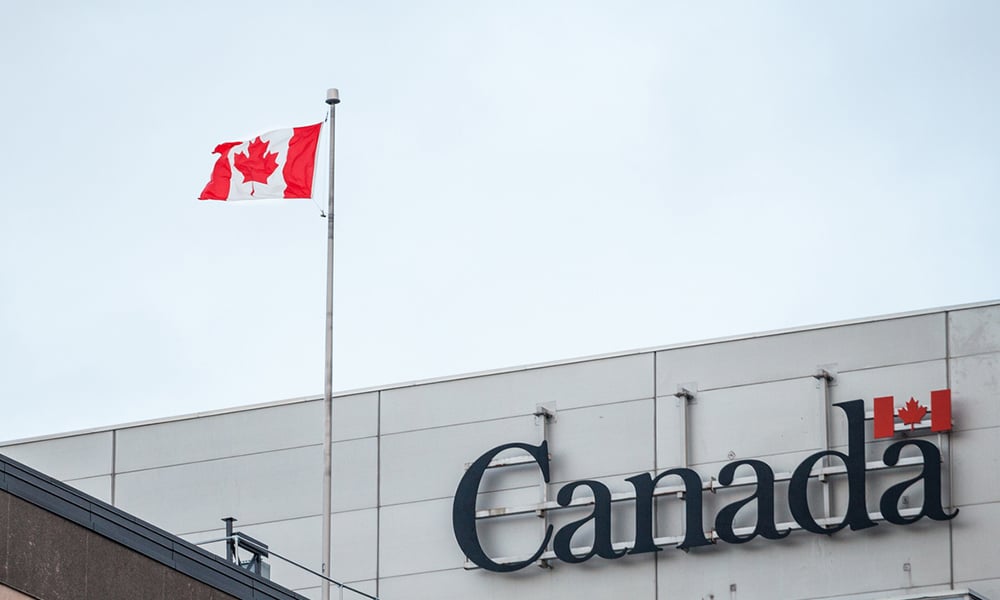Groups recognize Canada’s efforts for foreign workers

The federal government has announced a $58.6 million additional investment to the Temporary Foreign Workers (TFW) program to help safeguard the health and safety of Canadian and migrant workers from COVID-19.
“From the very beginning of the pandemic, the health and safety of temporary foreign workers has been a top priority. Any unsafe working conditions are completely unacceptable,” said Carla Qualtrough, minister of employment, workforce development and disability inclusion.
“While we are proud of the worker protections we have in this country, we recognize that there are important issues that need to be addressed within the Temporary Foreign Worker Program and we are taking action. We are working tirelessly to ensure that temporary foreign workers' rights are protected in Canada.”
From the total investment, $35 million will be spent to improve health and safety on farms and in employee living quarters to prevent and respond to the spread of COVID-19. This will go toward direct infrastructure improvements to living quarters, temporary or emergency on- or off-farm housing, as well as PPE, sanitary stations and any other health and safety measures. Non-repayable contributions will be cost-shared 50:50 with the applicants.
Also, $16.2 million will be for strengthening the employer inspections regime, particularly on farms, and for making improvements to how tips and allegations of employer non-compliance are addressed, such as by initiating an inspection. Another $7.4 million will be put to increase supports to temporary foreign workers, including $6 million for direct outreach to workers delivered through migrant worker support organizations.
“We care deeply about the well-being of all farm workers, who are helping ensure the food security of Canadians,” said Marie-Claude Bibeau, minister of agriculture and agri-food. “During the exceptional circumstances of COVID-19, we want to help farmers adapt and improve the employment conditions of all their employees as well as the living environment of temporary foreign workers.”
Accommodations
The government also said it will work to develop mandatory requirements to improve employer-provided accommodations, focusing on ensuring better living conditions for workers. It will consult with provinces and territories, employers, workers and foreign partner countries on a proposal for these mandatory requirements for the TFW Program in the months to come, and will work with those same partners to implement changes.
Improvements to worker accommodations will also help reduce the risk of infection and spread of COVID-19 for foreign workers, said the government.
The Government of Canada is also currently collaborating with the Canadian Red Cross and the Province of Ontario to set up temporary housing for those affected by the ongoing outbreak of COVID-19 cases amongst temporary foreign workers in Windsor-Essex County to support them to self-isolate, per public health guidance. This work is being advanced under the $100 million federal funding to the Canadian Red Cross to support additional relief and recovery efforts this year related to COVID-19, floods and wildfires.
The federal government also noted that Qualtrough and Bibeau issued a letter to employers of temporary foreign workers outlining its expectations of employers.
Pay
Also, the government previously amended the Immigration and Refugee Protection Regulations to hold employers accountable and to keep workers safe. These changes require employers to pay workers during their initial quarantine and ensure workers can observe the two-week quarantine period.
To help these efforts, the Canadian government announced the $50 million Mandatory Isolation Support for Temporary Foreign Workers Program to help farmers and food processors pay for the costs related to safely accommodating workers for the mandatory 14-day quarantine period, and the additional $35 million fund extends supports beyond the 14 days.
While provinces and territories are responsible for setting health care, employment standards and housing requirements in the agriculture sector post-quarantine in their respective jurisdictions, the Government of Canada is committed to further federal action to help to reduce the incidence and impact of on-farm outbreaks, and protecting those who are part of the Temporary Foreign Worker Program.
Welcome development
The Canadian Federation of Agriculture and the Council on Foreign Relations commended the government’s efforts to aid temporary foreign workers.
“CFA appreciates new announced funding to boost protections for temporary foreign workers across Canada. These measures will help ensure the safety of farm workers and fund infrastructure improvements to living quarters needed due to COVID -19,” CFA wrote on Twitter.
“In recent years, Canada has become an increasingly attractive destination for immigrants as the United States curtails many of its immigration programs, including those for refugees, asylum seekers, and temporary workers,” said CRF also on Twitter.
In April, the government announced the $50 million Mandatory Isolation Support for Temporary Foreign Workers Program which provides farmers and food processors up to $1,500 per worker to help pay for the costs related to meeting the mandatory 14-day quarantine period.
About 50,000 to 60,000 foreign agricultural, food and fish processing workers come to work in Canada each year, which accounts for more than 60 per cent of all foreign workers entering Canada under the Temporary Foreign Worker Program.
Last month, the governments of Canada and Manitoba announced a new $3-million cost-shared Canadian Agricultural Partnership program to support projects that will help agricultural processors mitigate the spread of COVID-19.
In June, British Columbia provided funding for the Okanagan communities to help with the annual arrival of seasonal fruit pickers and to better protect workers’, employers’ and communities’ health and safety with respect to COVID-19.





